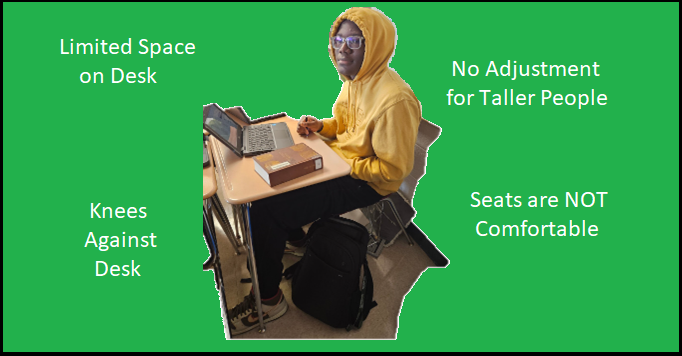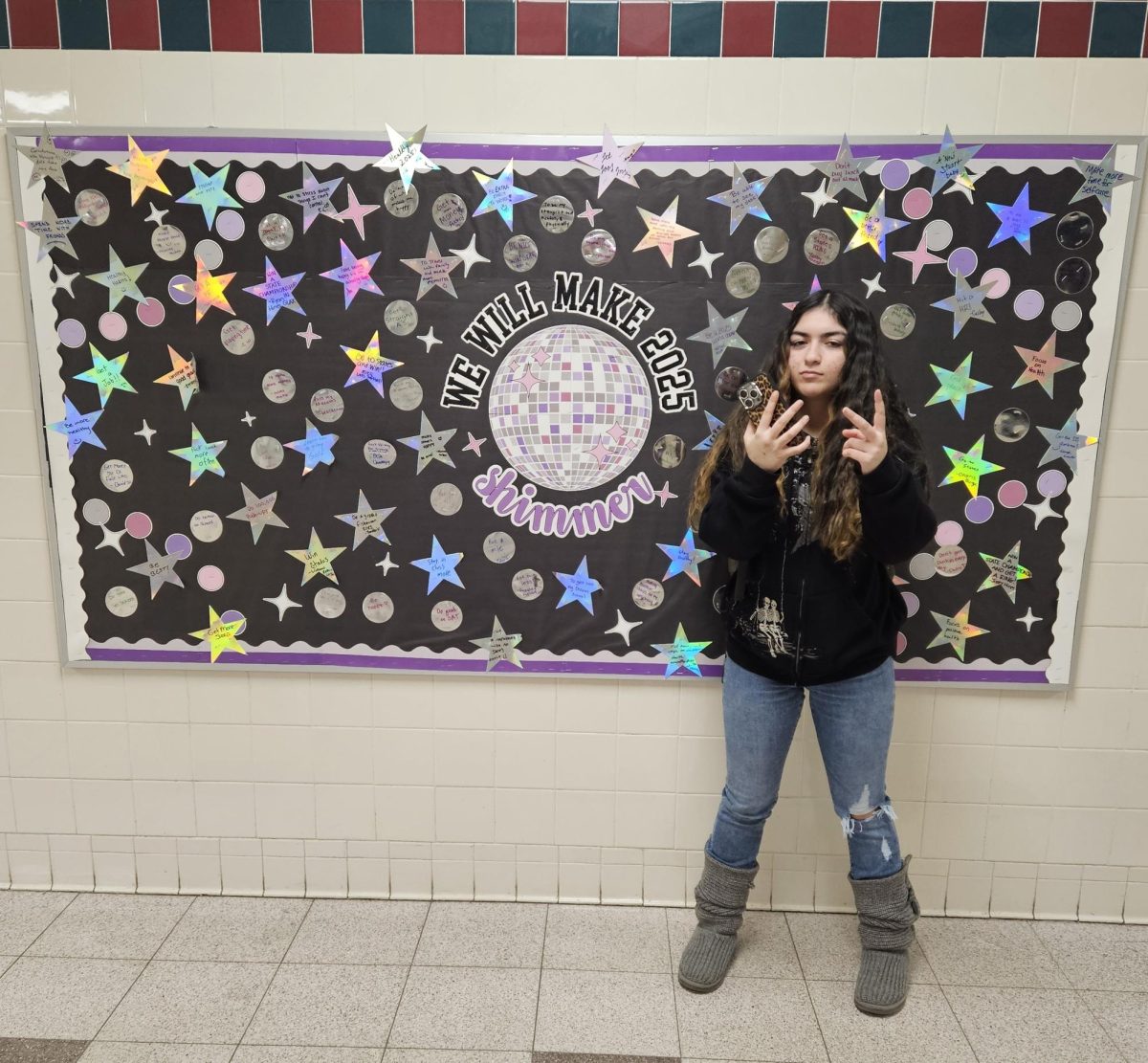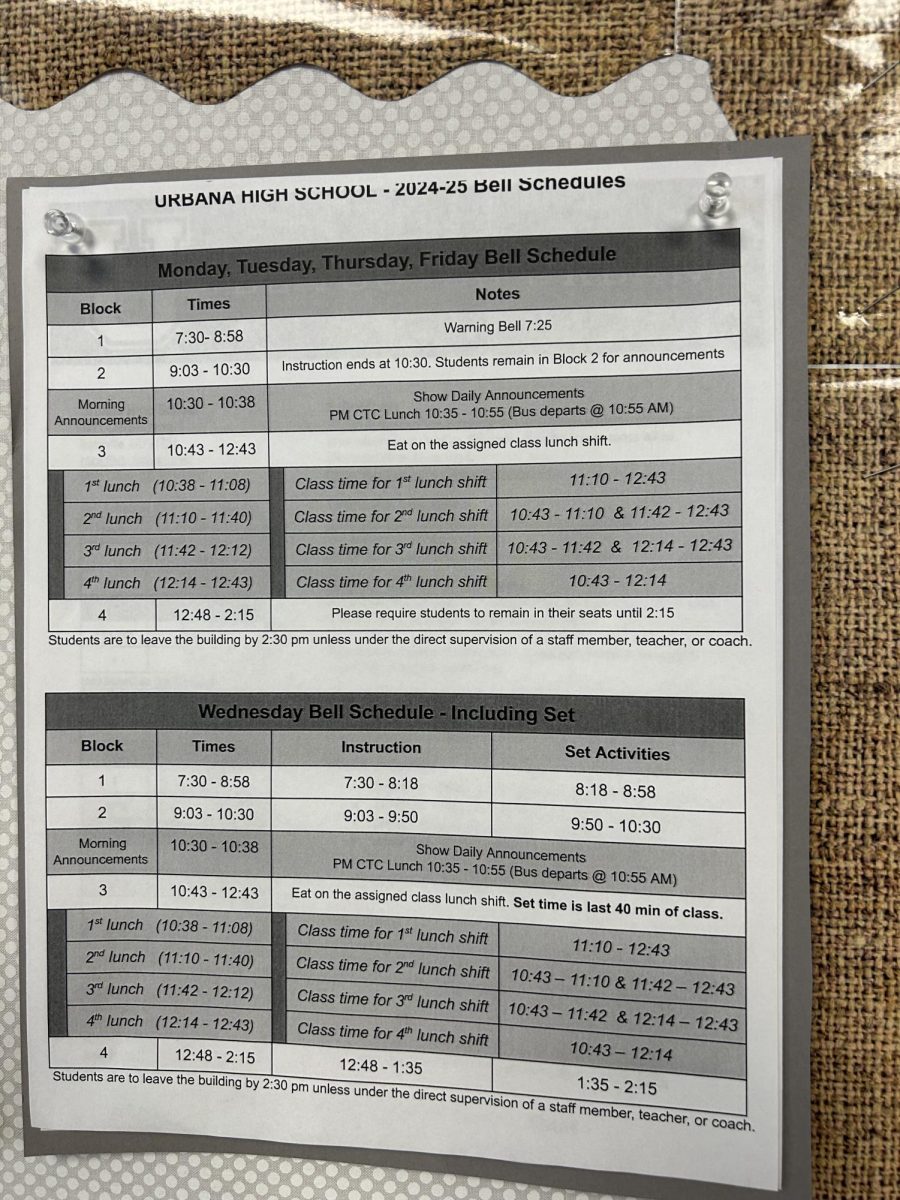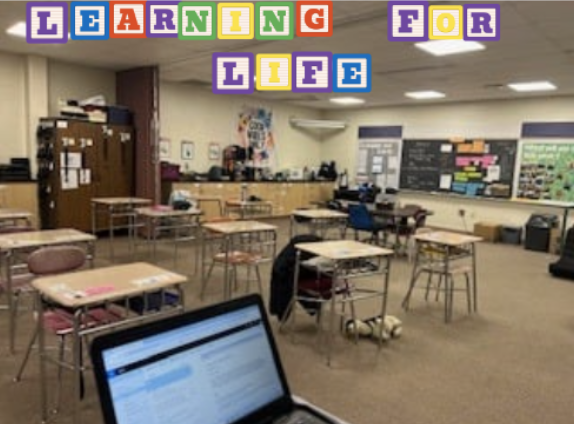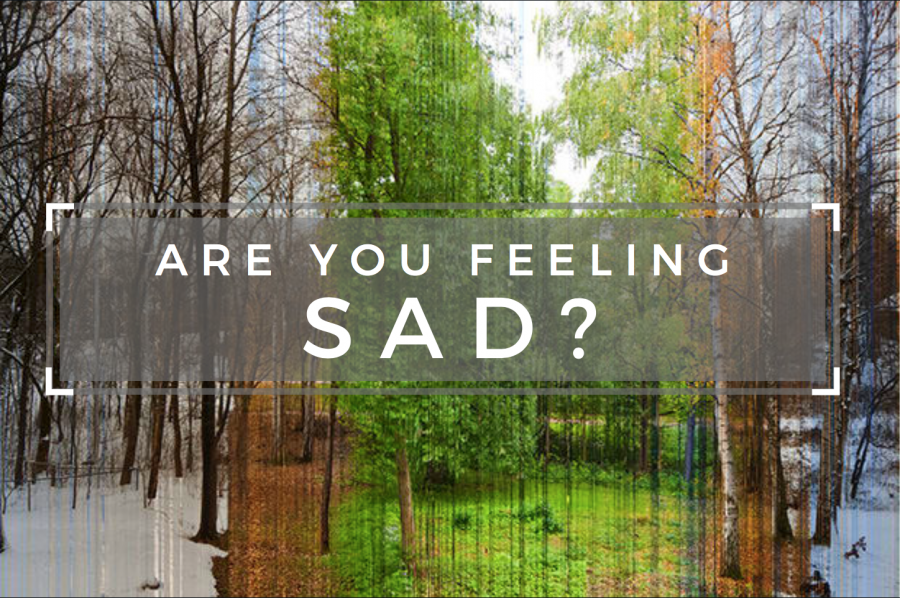Are You Feeling SAD?
Students Weigh in on the Winter Blues
March 11, 2019
Spring has almost sprung and everyone is ready to be freed of their seasonal depression, but do students actually work better during the winter?
In the fall and winter, daylight savings shortens the day and darkens the skies much earlier. In some people, this can cause seasonal affective disorder (SAD), or seasonal depression. People with seasonal depression may experience low energy, sluggishness, and low interest in activities they enjoy. Seasonal depression can come in the spring or summer as well, but that is much less common. Generally, when springtime comes and the clocks shift back, it feels as if a weight is lifted off everyone’s shoulders.
Do the changing seasons have an effect on work ethic and productivity? When asked “In which season do you work best?” an overwhelming number of students said that they feel much more productive in the spring.
“Winter makes me depressed,” said sophomore Daniyah Taimur. She said that during the fall/winter semester, she is less motivated than in the spring.
Sophomore Morgan Spencer agreed. She added, “[In the winter,] it’s dark and cold, and I have no motivation to do homework or get up early.”
In the colder months, the dark skies, weather, and holiday breaks tend to leave students unmotivated to do their best work. During the spring semester, the light and warmth seem to energize students to finish out the year strong and put in more effort.
One student interviewed felt differently. She commented, “When it’s the beginning of the year I try harder, but by the end, senioritis kicks in, and I just want to be done with school.” Even as underclassmen, students can feel the summer approaching and just want school to be over.
Although many feel as though the sun and warm weather improve work ethic, some students notice that towards the end of the year they are less motivated to work hard. As summer gets closer, some students become less invested in school and give up.
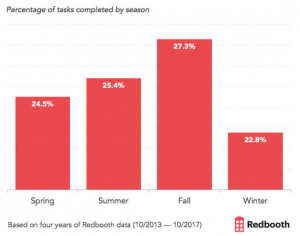
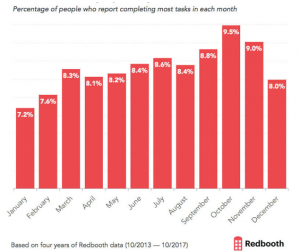
Data from Redbooth (2017) shows that seasonal depression does have a real effect on people and their productivity. They collected anonymous data from 2013-2017 and found that people were the least productive in winter with January being the least productive month. Spring was not the most productive season, however. Spring and summer months showed about medium levels of productivity, but summer productivity was slightly higher than that of spring. They reported that people were the most productive in the fall; more specifically, October.
Now, how does all of this relate to students at Urbana? One way is that it could help plan testing. If students do their best work in the fall, then the best time for testing, the SAT or PSAT for example, could result in the best scores if students test in the fall. Looking at this data could help schools find trends in data and how to keep students’ productivity consistent. Productivity seems lowest in the winter months and this is likely due to seasonal depression. It is important to find ways to combat it.
To fight the effects of the changing seasons, schools could help students by using light therapy boxes, opening shades on windows, or even adding more long weekends for students to look forward to. Students can help themselves by getting more sleep, taking vitamin D supplements, and making lifestyle changes, such as exercising more, journaling, or speaking with a therapist or doctor.
Spring begins on March 20.
Works Cited
Orenstein, B. W. (2017, June 05). 12 Ways to Ease Seasonal Depression Symptoms | Everyday Health (L. E. Marusinec MD, Ed.). Retrieved from https://www.everydayhealth.com/depression/treatment/ways-to-ease-seasonal-depression/
(2018, February 06). When Are You Actually the Most Productive | Redbooth Blog. Retrieved March 8, 2019, from https://redbooth.com/blog/your-most-productive-time














